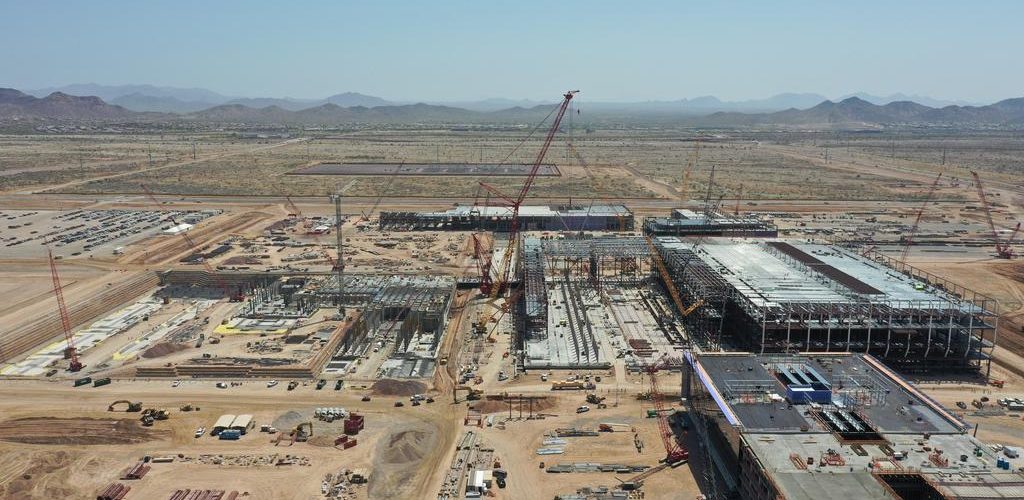Taiwanese Semiconductor Manufacturing Company is deep into the construction of its new manufacturing plant in north Phoenix and is ensuring it will have the workforce necessary to produce the semiconductors that are used in everything from computers to automobiles to consumer goods.
More than 600 employees, mostly American, recently returned from Taiwan after one to two years of advanced manufacturing training. Local Phoenix leaders were at Sky Harbor Airport to welcome the workers, celebrating the efficiency with which TSMC has integrated into Arizona’s semiconductor industry.
“It’s a huge commitment to train so many people overseas,” Phoenix Mayor Kate Gallego said. “We want to make sure the TSMC employees feel welcome.”
The return of TSMC’s American employees from Taiwan is an example of the efforts the semiconductor company is taking to prepare its workforce for advanced semiconductor manufacturing.
Arizona workforce leaders are meeting the need for new semiconductor workers by expanding the employment pipeline through investments in Arizona State University and the Maricopa Community College District. TSMC Arizona CEO Rick Cassidy said that the more education that happens stateside with the help of TSMC, the less training will need to happen overseas.
Earlier this month, Arizona legislators toured ASU MacroTechnology Works in Tempe, which is helping to develop a skilled workforce to meet semiconductor needs. TSMC leaders discussed the importance of programs like these to support the nearly 4,500 jobs which the company plans to create.
“Of these jobs, around 3,000 will be four-year engineering degrees. So, we want the majority to be from ASU, but we need to make those investments,” said Laura French, TSMC director of state government relations.
In addition to preparing its workforce, the company is also navigating a period of high inflation that has led to higher construction costs. On an earnings call in January, TSMC leaders discussed rising construction costs for the Arizona plant.
“The high cost of construction includes labor cost, cost of permits, cost of occupational safety and health regulations, inflationary costs in recent years and people and learning curve costs. Therefore, the initial costs of overseas fabs are higher than our fabs in Taiwan,” TSMC CFO Wendell Huang said.
The U.S. semiconductor sector is also monitoring the rules for the implementation of the CHIPS and Science Act. The Commerce Department recently announced that semiconductor manufacturers would have to comply with mandates on stock buybacks and share profits with the government in order to receive funding from the CHIPS Act.
“We’re watching the new law’s implementation closely,” Arizona Chamber of Commerce & Industry President and CEO Danny Seiden said. “If the administration ties the CHIPS Act up in red tape, then it risks the law not fulfilling its potential and it risks the U.S. semiconductor sector not growing at the pace it could and should.”
















Add comment